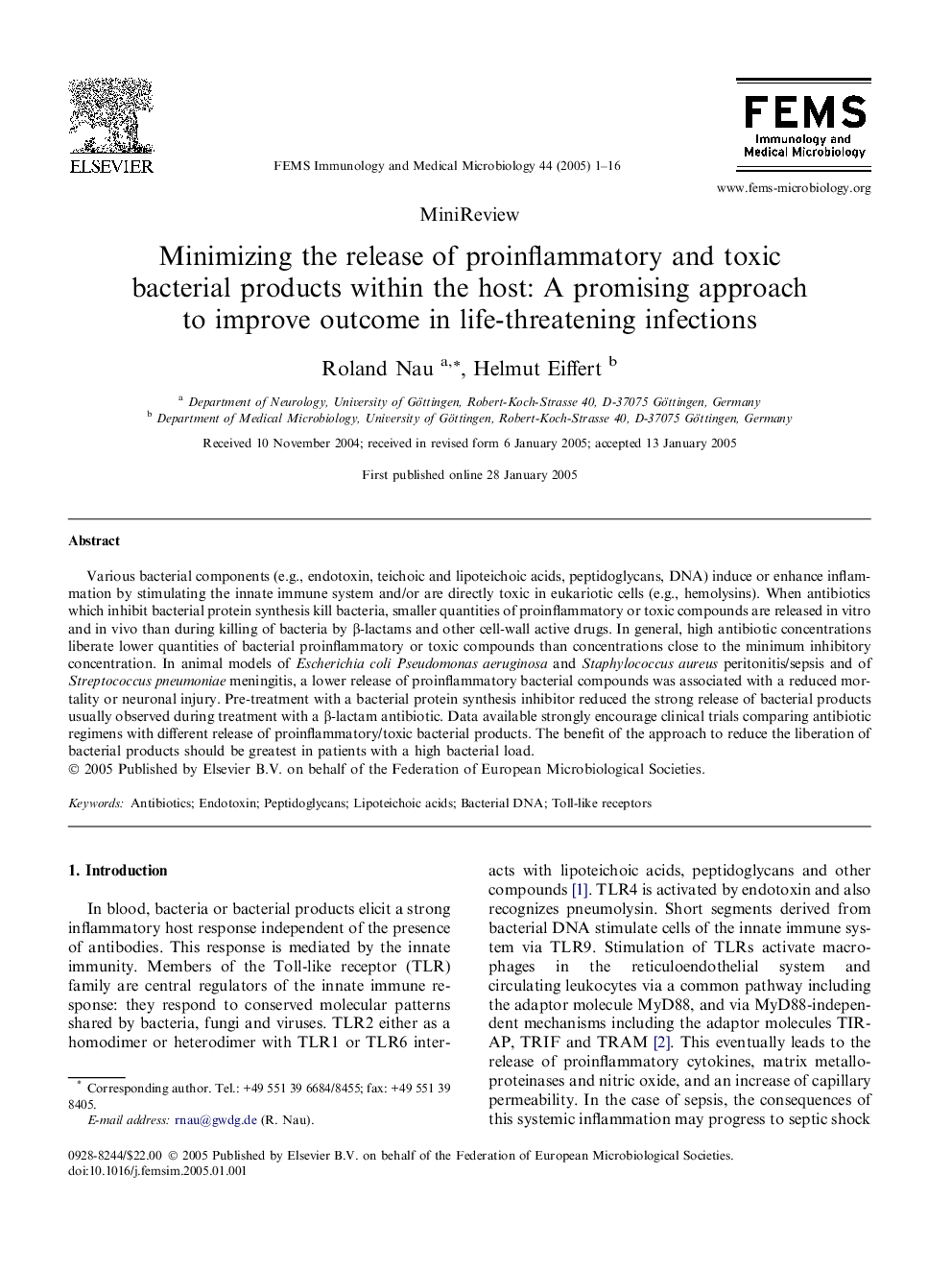| Article ID | Journal | Published Year | Pages | File Type |
|---|---|---|---|---|
| 9278068 | FEMS Immunology and Medical Microbiology | 2005 | 16 Pages |
Abstract
Various bacterial components (e.g., endotoxin, teichoic and lipoteichoic acids, peptidoglycans, DNA) induce or enhance inflammation by stimulating the innate immune system and/or are directly toxic in eukariotic cells (e.g., hemolysins). When antibiotics which inhibit bacterial protein synthesis kill bacteria, smaller quantities of proinflammatory or toxic compounds are released in vitro and in vivo than during killing of bacteria by β-lactams and other cell-wall active drugs. In general, high antibiotic concentrations liberate lower quantities of bacterial proinflammatory or toxic compounds than concentrations close to the minimum inhibitory concentration. In animal models of Escherichia coli Pseudomonas aeruginosa and Staphylococcus aureus peritonitis/sepsis and of Streptococcus pneumoniae meningitis, a lower release of proinflammatory bacterial compounds was associated with a reduced mortality or neuronal injury. Pre-treatment with a bacterial protein synthesis inhibitor reduced the strong release of bacterial products usually observed during treatment with a β-lactam antibiotic. Data available strongly encourage clinical trials comparing antibiotic regimens with different release of proinflammatory/toxic bacterial products. The benefit of the approach to reduce the liberation of bacterial products should be greatest in patients with a high bacterial load.
Related Topics
Life Sciences
Immunology and Microbiology
Immunology
Authors
Roland Nau, Helmut Eiffert,
